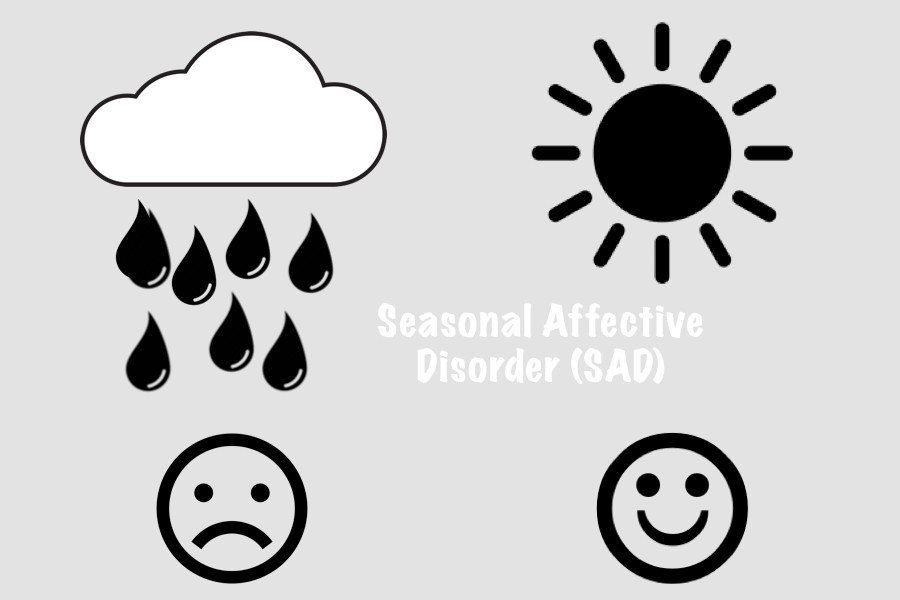How to deal with Seasonal Affective Disorder this winter
February 14, 2018
When the clocks turned back last November, days ended earlier and earlier. Even now, days are shorter, ending around 5 p.m. and making the night feel everlasting. It is not uncommon for this to affect your mood, and if it does, it’s known as seasonal affective disorder (SAD).
SAD is a form of depression that comes with the fall and winter seasons due to a lack of light and colder weather, according to the National Institute of Mental Health. The institute says to consider increased appetite, weight gain or loss, social withdrawal, feeling lethargic and general moodiness if you’re trying to decide whether you have this condition.
Experts say these feelings are very real, and even have a biological effect. For example, without the light from the sun, you produce less of the hormone melatonin. Vice.com reported that the rate of SAD in Alaska and other states is double that in Canada.
But remember that winter is temporary, and feelings of SAD are too. In the meantime, take proper action and seek out help if you need it. Here are seven things you can do on your own.

- Venture to the great outdoors. A report from the University of California Davis says that going outdoors in the daytime decreases feelings of SAD. This gives you boosts of vitamin D, which is a critical variable to our over health and mental health.
- Light. If your location lacks daylight, you can go to your doctor to get prescribed light therapy. Although it is artificial lighting, it has been shown to help minimize feelings of SAD, according to a report by Harvard Medical School. This gives you boosts of serotonin, a mood-regulating neurotransmitter.
- Reach out. An article on mayoclinic.org says that even reaching out to a close companion can help you fight this depression state (although it should be in combination with other treatments). Isolating yourself will not do anything to lift your spirits. In fact, surrounding yourself with love and laughter can help diminish feelings of depression.
- Working out. It is well known that working out releases endorphins, ultimately giving a mood boost. This could be critical to do when you feel down.
- Eat right.Harvard University Health Blog wrote that your eating habits directly affect one’s mood. That being said, opt for vegetables and lean proteins to help you feel good from the inside. Also, try chamomile, chocolate, walnuts, fish and yogurt, which can help lift your spirits.
- Get back control. While you do not have a say in the outside temperature and weather, you can get some control back by reconstructing your room to make you happier. Try painting the walls a brighter color or hanging pictures of friends, really anything that brings a smile to your face.
- Put things into perspective. While these severe feelings are valid and can be debilitating, try putting things into perspective. In other words, focus on the good. It could go a long way into making you feel better.
